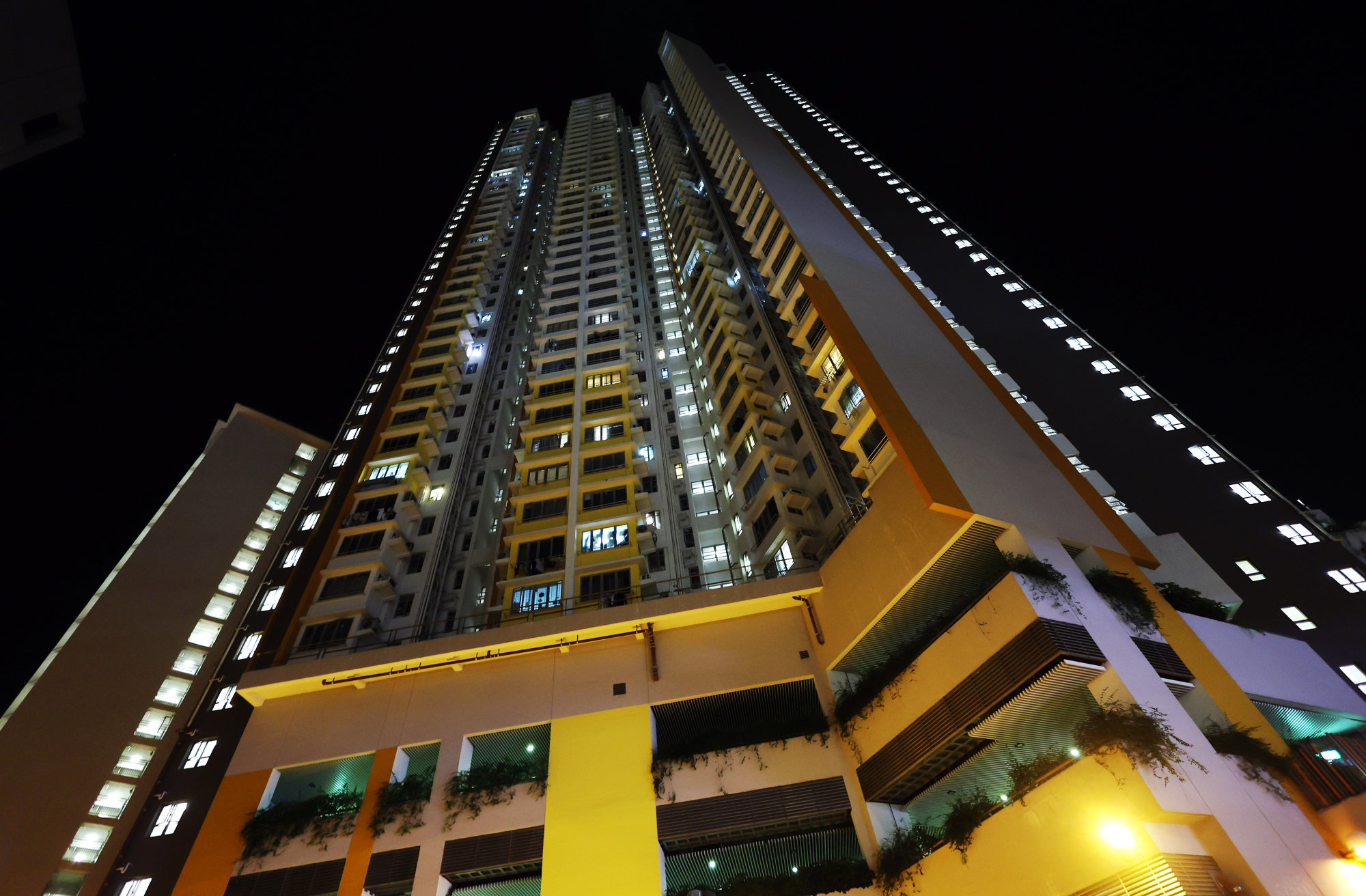
Abby Choi murder: Hong Kong authorities vow to tackle public housing abuse after model’s ex-father-in law found to own luxury home and subsidised flat
- Housing chief pledges to review eligibility rules under Home Ownership Scheme to close loophole that allows wealthy public housing tenants to buy subsidised flats
- Housing Bureau earlier admitted the government had not checked incomes and assets of public flat applicants since launching scheme in the 1970s
The pledge from Secretary for Housing Winnie Ho Wing-yin on Wednesday came as lawmakers took aim at her bureau over inadequate safeguards in the system amid accusations that Choi’s former father-in-law Kwong Kau had exploited the Home Ownership Scheme.
Kwong, 65, is one of three defendants charged with 28-year-old Choi’s murder. The others are his sons Anthony Kwong Kong-kit, 31, and Alex Kwong Kong-chi, 28, who was the model’s ex-husband.

Choi’s former mother-in-law Jenny Li Sui-heung, 63, was charged with perverting the course of justice for allegedly destroying evidence during a police investigation.
In November 2019, Kwong Kau was registered as the owner of a 1,820 sq ft luxury flat in the exclusive Kadoorie Hill neighbourhood in Ho Man Tin.
Less than a year later, he was listed as the owner of a 291 sq ft subsidised flat at Sheung Man Court in Kwai Chung. The flat was sold under the Home Ownership Scheme for HK$2.18 million in July 2020 and had a HK$2.1 million mortgage.
The mortgage value suggests Kwong only made a down payment of HK$110,000, or 5 per cent of the flat’s price, the minimum required from applicants.
The scheme offers affordable homes for tenants of public rental units, or those whose income and assets do not exceed a certain threshold. The flat which Kwong bought was sold at 59 per cent of the market value.
The Housing Bureau earlier admitted the government had not checked incomes and assets of public flat applicants since launching the scheme in the 1970s.
At a Legislative Council meeting on Wednesday, Ho pledged to review eligibility requirements under the scheme to close a loophole which allowed wealthy public housing tenants to buy subsidised flats without undergoing income and asset assessments, while vowing to combat abuse of public flats.
“We understand society’s concerns over tenancy abuse,” Ho said, while declining to comment on individual cases.
“We will also continue to deploy strategies and manpower to collect evidence on abuse of public rental housing resources, and strengthen communications among various government departments, to step up the fight against such acts.”
Currently, under the well-off tenants policy, which was revised in 2017, households must return public flats to the government if their income and assets exceed certain limits, or they are found to own residential property, so as to prevent the abuse of resources.

Households that had stayed in a flat for 10 years were required to make a declaration every two years, while investigations would also be launched based on tip-offs.
An average of 690 households annually were found to own a residential property, or had exceeded the income and assets limits since the policy came into effect, accounting for 0.3 per cent of households screened, Ho told lawmakers.
Convictions were secured in 526 cases for not making truthful declarations, an offence punishable by up to six months in jail and a HK$50,000 fine, she said, adding the government would consider reviewing the penalties to strengthen the deterrent effect. Ten offenders received jail sentences.
The authorities would also look into ways to identify tenants who owned properties overseas and utilise artificial intelligence to speed up the process, Ho said.
“There are many clues we could pick up in the management of public housing units. For example, we would investigate units which did not respond to authorities during lockdown and testing operations during the Covid-19 pandemic,” she said, adding more than 1,300 flats had been confiscated under those investigations last year.

